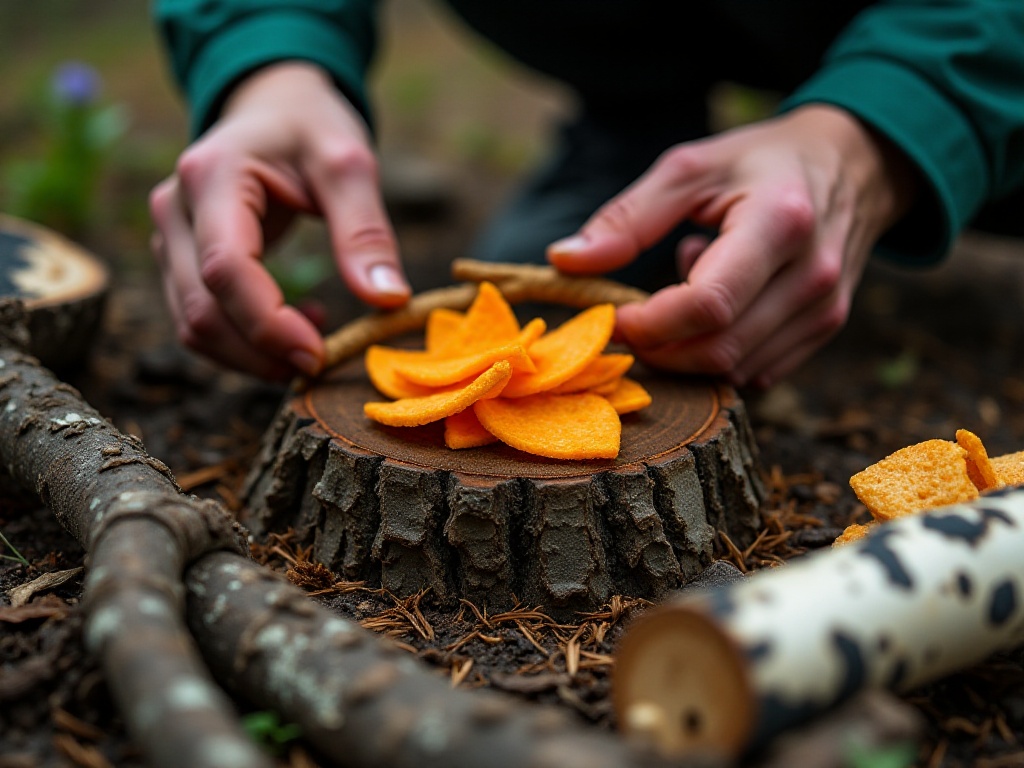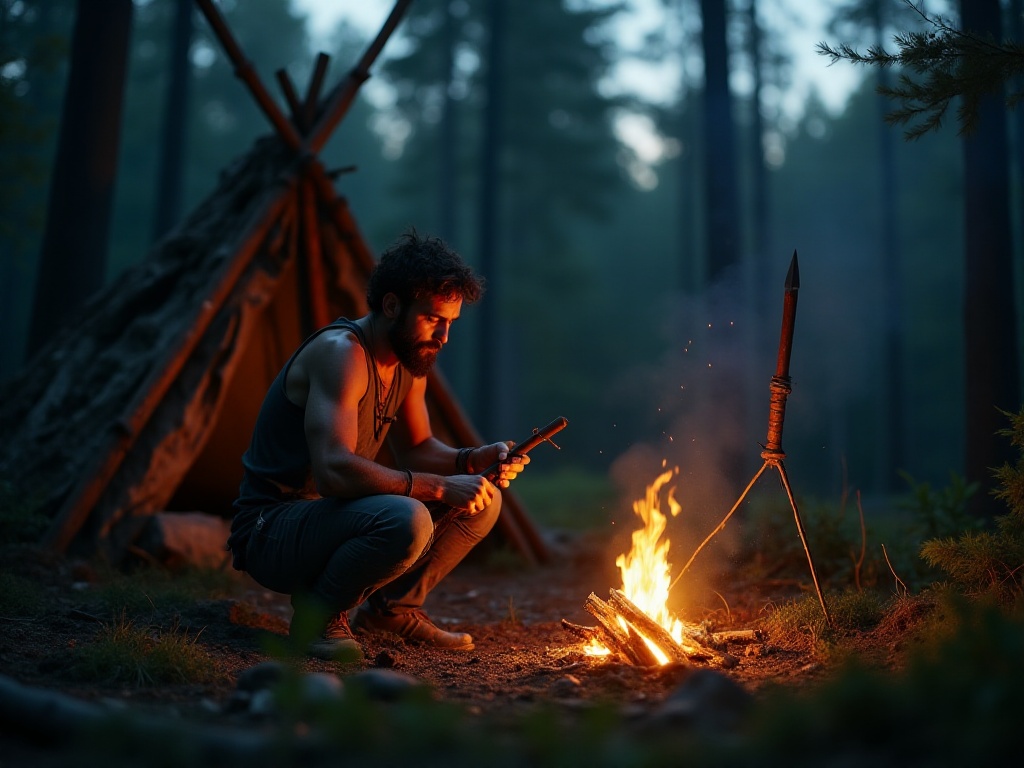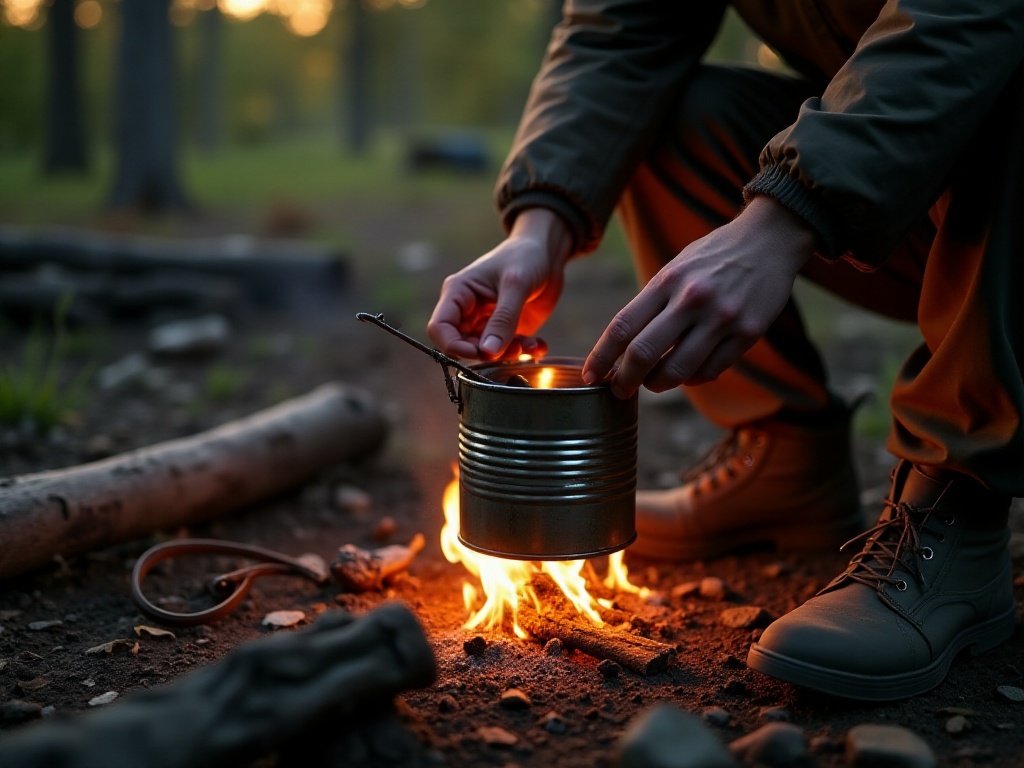Opening Words
Hi everyone, I'm K, a lifestyle blogger who loves to share. A few weeks ago, I participated in an outdoor adventure and, due to overconfidence, got lost in the mountains for an entire week. Honestly, this experience was both a thrilling adventure and a valuable life lesson.
At the time, I thought how great it would have been if someone had taught me these wilderness survival skills beforehand. Looking back now, that feeling of being alone with nature and the desire to survive gave me a completely new understanding of life. Today, I want to share my personal experience and practical tips with you all, hoping you can learn something from my experience.
Pre-Trip Preparation
What's the most important thing about wilderness survival? Absolutely thorough preparation. I was too careless that time, thinking I could handle it easily after watching a few adventure videos, and almost got myself in serious trouble. Looking back now, it's really frightening.
First, you must let your family and friends know your specific itinerary. Don't just say "I'm going hiking" - tell them which mountain you're going to, which route you're taking, when you expect to reach each point, and when you'll return. If possible, send them your hiking route map. This way, if anything happens, rescue teams can quickly narrow down the search area.
I was too casual about it, just saying "going to XX Mountain for two days," so my friends had no idea where to start looking. They eventually located me roughly based on some social media photos I had posted. That was a profound lesson.
Equipment Selection
Speaking of equipment, it's truly a love-hate relationship. I love how these tools can save lives in crucial moments, but I regret not bringing enough. Now, I double-check my equipment list before every trip, preferring to pack extra rather than too little.
First, let's talk about backpacks. A good waterproof backpack is absolutely crucial. I now use a 45L outdoor backpack with a special waterproof liner. You might think this is overkill, but anyone who's experienced heavy rain knows that a waterproof backpack keeps your equipment dry, which is absolutely critical for wilderness survival.
Attitude Adjustment
Honestly, the scariest thing about getting lost in the wilderness isn't the inability to find your way - it's the psychological panic. On my first day of being lost, I was extremely anxious. One moment I'd worry about wild animals, the next about darkness falling, and the more anxious I got, the harder it became to find my way.
Practical Skills
Regarding specific survival skills, finding and purifying water is the most basic. In the wilderness, you can go days without food, but lack of water can be fatal. Remember several principles when looking for water: valleys are more likely to have water sources than mountaintops; morning and evening dew can be water sources; areas with lush vegetation may have water sources.
Innovative Thinking
What tests people most in wilderness survival is their innovative ability. Many seemingly ordinary items can be very useful in the wild. For example, empty beverage bottles can be used as support connectors, and I've used them to make simple rainwater collectors; blankets and branches can build temporary shelters, and in emergencies can even serve as stretchers.
Conclusion
After this incident, my biggest realization was that wilderness survival skills can't be learned just by watching videos or playing games - they must be learned through practice. Now I find time every month to train outdoors and gradually accumulate experience. Although we might never need these skills, it's better to be prepared.
That's all for this sharing session. I hope it helps those preparing for outdoor adventures. Remember, nature is both friend and teacher, and we should approach and understand it with reverence. Next time, I'll talk in detail about wilderness first aid, including how to handle common injuries. Stay tuned, everyone.







